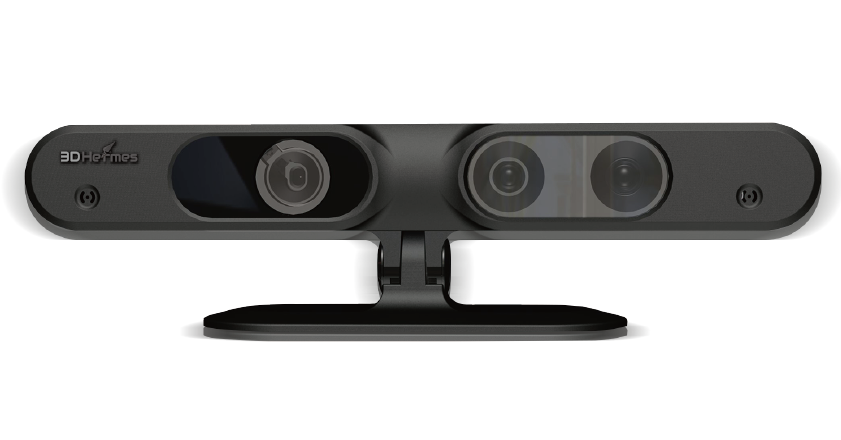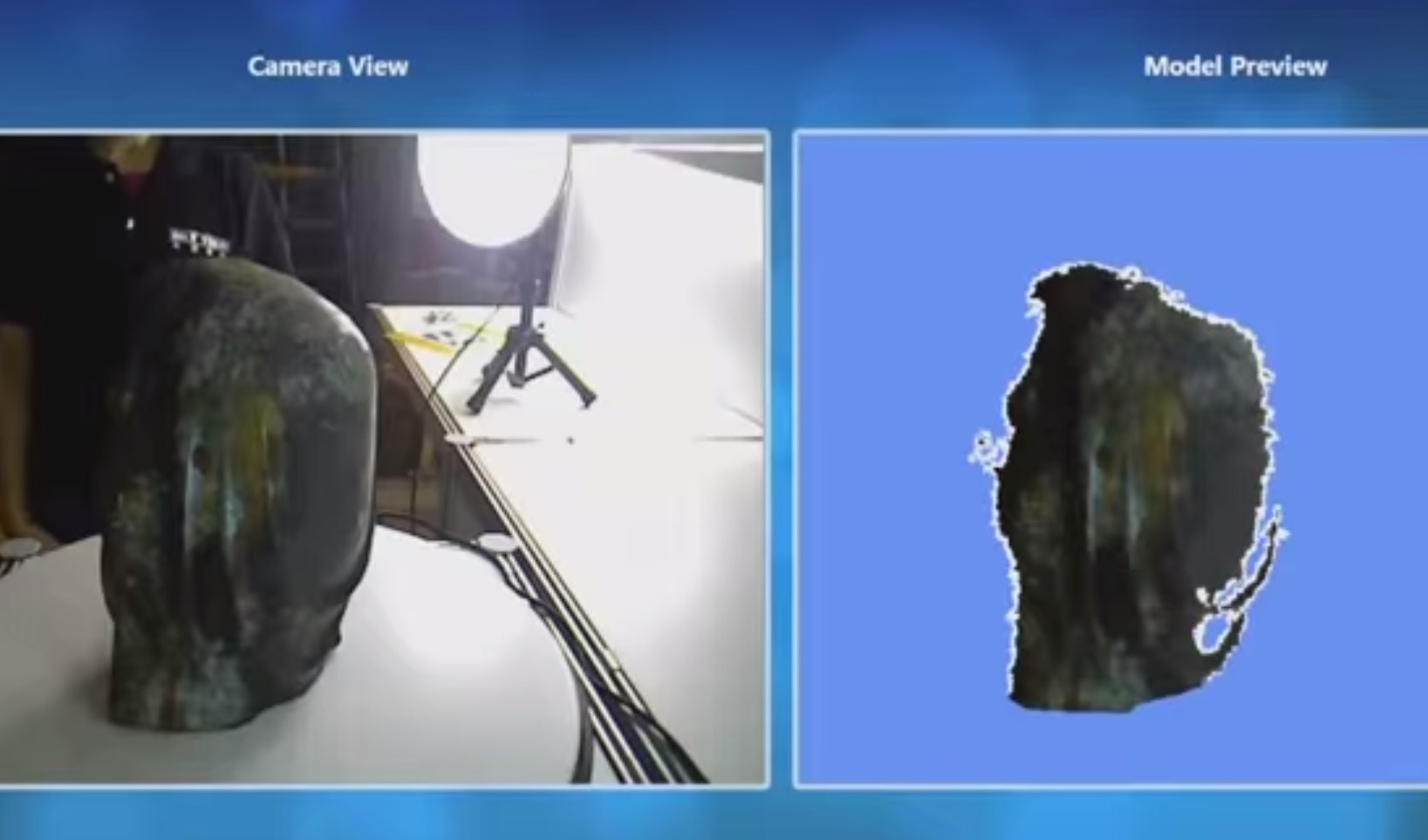
Taiwan-based SKY-TECH has announced a new handheld 3D scanner based on Intel Realsense, the 3D Hermes.
The company touts the product as “the world’s first user friendly 3D scanner supporting Intel® RealSense™”, which may be true, but there’s likely a great many others working on similar products using the new Intel tech.
Aside from the hardware, all 3D scanning solutions require great software to make them fully functional, and SKY-TECH appears to have done a reasonable job preparing a comprehensive suite of tools for the scanner.
You can get a good feel for how the product works by watching their video, which demonstrates the 3D scanning process from beginning to end, including a mono-color 3D print at the end.
The system appears quite versatile, as it can operate in a variety of modes to suit your specific application. It can be used in handheld mode, or fixed to a tripod. The subject can be static or rotated on a turntable. The scanning volume is adjustable, making it possible to scan both small and large objects, including an entire small room if necessary. Scanning volumes range from 200 x 100mm up to 3 x 3m, with scanning distances of 0.35 – 3.00m.
The software captures the scan in full color, and can export a color 3D model in OBJ/MTL or PLY formats. It can also export in STL, too.

Specifications indicate the scanner can capture up to a resolution of 1mm, which is much poorer than high-end laser-based 3D scanners, but they cost far more than SKY-TECH’s option.
For this software, you’ll require a Windows machine with a reasonably powerful graphics card. They list, for example, “AMD Phenom X3 8750, 2-16 GB RAM, NVIDIA GeForce 240 or ATI Radeon HD 5700 series” as supported.
One of the best features is an ability to automatically prepare a scan for 3D printing. This means they repair holes, smooth out the surface, remove extraneous scanned junk and flatten the base for you.
Priced at USD$499 (and another USD$130 for the optional turntable), this unit is far less expensive than commercial 3D scanners and should produce reasonable results for hobbyists and those scanning organic objects. It’s likely insufficient for 3D scanning machine parts, however.
Via SKY-TECH

